Partners

Emilia-Romagna Region is the lead applicant of the project. It is the public authority administrating the region with the same name located in Northern Italy, with over 22.000 square km area and 4.5 million inhabitants. Emilia-Romagna Region has been engaged in development education for many years. In the regional law number 12 of 2002 there is a specific paragraph that engages the Region to support initiatives of education and awareness raising on international cooperation, peace and inter-cultural activities, respect of human rights. Emilia-Romagna Region approves every year a regional program on the issues of peace and human rights and coordinates all the local authorities operating on regional territory in order to promote participated processes and uniformity of approaches. Emilia-Romagna is also a major cultural and touristic centre, being the home of the oldest university in the Western World, containing numerous Renaissance cities, being a major centre for food and automobile production and having a lively and colourful coastline, with numerous tourist resorts.
Regione Emilia-Romagna website
_
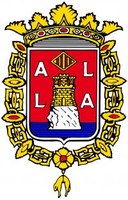
Alicante is a cosmopolitan city located on the East coast of Spain and bathed by the Mediterranean Sea. Its population (January 1st, 2017) consists of 329,998 people, whose 86.3% are Spanish and 13.7% foreigners, 52.20% are men and 47.80% are women.
Alicante has a large number of museums in its urban center. Among them, Archaeological, Contemporary Art, Fine Arts Museums. Worth noting is also the Santa Bárbara Castle, a medieval fortress from which you can see the entire city with stunning views of the Mediterranean Sea.
In the city itself, there are significant parks that represent a haven of peace within the hustle and bustle of a city. They are those of Canalejas, La Ereta, Portal de Elche or Pantheon of Quijano, to name a few of them.
Its port, exit area of the Volvo Ocean Race regatta, has a Cruise Terminal. Next to the port area is Playa del Postiguet, one of the busiest one, next to San Juan in the Northern area, and La Albufereta. In the South, that of Los Saladares.
_
 Regional Office for Cross Border Cooperation – Iasi (BRCT laşi) is a non-governmental body, activating in the field of regional development and cross-border cooperation, contributing to promote the cooperation between regions, communities and authorities located in the both sides of the border Romania - Republic of Moldova. In the programming period 2004-2006, was implementing authority for the Neighbourhood Programme Romania-Republic of Moldova 2004-2006, components of Phare CBC 2004, 2005 and 2006, monitoring around 180 projects implemented in the border area Romania-Republic of Moldova, with a total value of approximately 31 million euro. During the 2007 - 2013 programming period, BRCT Iași hosted the Joint Technical Secretariat for the JOP Romania - Ukraine - Republic of Moldova, and for the 2014 - 2020 period is hosting the Joint Technical Secretariat for the JOP Romania - Republic of Moldova. During 2007 - 2013, JTS supervised a number of about 100 projects (large and soft), with a total value of about 100 million euro. Experiences and activities of BRCT Iași include project management and monitoring. BRCT was involved in the development of the Joint Operational Programme, from the Analysis part to the selection of objectives, priorities, measures and has very good experience in strategic planning, applying methodologies, prioritizing, defining indicators. BRCT gathered a skilled and trained team of professionals.
Regional Office for Cross Border Cooperation – Iasi (BRCT laşi) is a non-governmental body, activating in the field of regional development and cross-border cooperation, contributing to promote the cooperation between regions, communities and authorities located in the both sides of the border Romania - Republic of Moldova. In the programming period 2004-2006, was implementing authority for the Neighbourhood Programme Romania-Republic of Moldova 2004-2006, components of Phare CBC 2004, 2005 and 2006, monitoring around 180 projects implemented in the border area Romania-Republic of Moldova, with a total value of approximately 31 million euro. During the 2007 - 2013 programming period, BRCT Iași hosted the Joint Technical Secretariat for the JOP Romania - Ukraine - Republic of Moldova, and for the 2014 - 2020 period is hosting the Joint Technical Secretariat for the JOP Romania - Republic of Moldova. During 2007 - 2013, JTS supervised a number of about 100 projects (large and soft), with a total value of about 100 million euro. Experiences and activities of BRCT Iași include project management and monitoring. BRCT was involved in the development of the Joint Operational Programme, from the Analysis part to the selection of objectives, priorities, measures and has very good experience in strategic planning, applying methodologies, prioritizing, defining indicators. BRCT gathered a skilled and trained team of professionals.
_

Falköpings kommun is a municipality in Sweden. The town of Falköping is the seat of Falköpings kommun. Falköpings kommun has 33.000 inhabitants. Approximately 50 % live in the city of Falköping and 50 % live in the countryside. The town of Falköping is situated along the Western Main Line which is the railline between Stockholm and Gothenburg, the two biggest cities of Sweden. This location offers good opportunities regarding commuting, trade and industry. Falköpings kommun has taken a great responsibility for helping refugees. Both during the ”Yugoslav wars ” in the 1990s and the ”European refugee crisis” beginning in 2015, but also in between these. This makes Falköpings kommun a diverse society. Falköpings kommun focuses its work on creating ”social sustainability” building upon its diverse society. The ambition is to create a stable and dynamic society in the long run where all citizens feel involved and have the power to control its own economy, work, living, culture, education, recreation, health, security etc. The work to shape a fair city is mainly focused on social inclusion of refugees, in order to make them a part of the society where the feel included, and the relationship between the city and the countryside, in order to build trust and understanding.
Municipality of Falkoping website
_
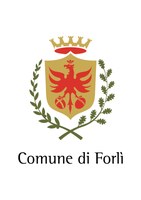
Set in the Emilia-Romagna region, the city of Forlì is the administrative center of the Province of Forlì-Cesena and border with the Municipality of Forlimpopoli (South-East), the Municipality of Faenza (North) and with the Municipality of Castrocaro Terme and Terra del Sole (West). Today the City has over 119.000 inhabitants and can be considered a vibrant city from the economic and cultural point of view. Forlì offers an increasing number of attractions in terms of artworks, monuments, sports and leisure activities. The existing network of businesses and cooperative partnership is widespread and this, together with the quality of services, allows the population to enjoy one of the highest level of life quality in Italy. Since 2013, Forlì is part of the ATRIUM Route, which gained a recognition from the Council of Europe in 2014. Forlì is the leader of this project due to the architecture and urban design partly deriving from the totalitarian period. At the same time, more than 20.000 foreigners live in Forlì. Several networks and associations are devoted to reception and inclusion policies on the ground, working in an intercultural enviroment by dealing also with related topics such as gender equality. The Municipality of Forlì deals mainly with health, education, environment, culture, business and public works policies. It also tries to encourage active participation, autonomy and conscious involvement of citizens in the society.
_

WeWorld-GVC is an Italian independent organisation born from the merger between GVC Ngo (founded in Bologna in 1971) and WeWorld Foundation (founded in Milan in 1999), with the aim of increasing the impact of their Development Cooperation and Humanitarian Aid projects in 29 countries worldwide, including Italy. Together WeWorld and GVC carry out 128 projects reaching over 2,4 million direct beneficiaries and 12,3 million indirect beneficiaries. WeWorld-GVC operates in Italy, Greece, Syria, Lebanon, Jordan, Palestine, Libya, Tunisia, Burkina Faso, Benin, Burundi, Kenya, Tanzania, Mozambique, Mali, Niger, Bolivia, Brazil, Peru, Nicaragua, Guatemala, Dominican Republic, Haiti, Cuba, Afghanistan, India, Nepal, Thailand, Cambodia. Children, women and youth, actors of change in every community, are the protagonists of WeWorld-GVC projects and campaigns in the following fields of intervention: human rights (gender equality, prevention and contrast of violence against women and children, migrations), humanitarian aid (prevention, aid and reconstruction), food security, water and sanitation, health, education and learning, socio-economic development, environmental protection, global citizenship education and international volunteering.
_
 laşi County is located in the North-Eastern Romania, at the eastern border of the EU, neighbouring the Republic of Moldova. It has 0.93 million inhabitants: 48.38% in the urban area and 51.62% in the rural area, in 5,476 km² total surface. Administrative structure: 2 municipalities (Iași and Pașcani), 3 towns and 93 communes. Its main industries are: IT, software & electronics, automotive, healthcare & pharmaceuticals, metallurgy & heavy-equipment manufacturing, constructions and textiles. It has over 100 Kindergartens and primary schools, 15 hospitals and medical centres of excellence, parks, shopping centres and leisure facilities, 5 universities and culture centres: German Culture Centre, British Council, French Institute, Cultural Centre of Latin America and the Carribean. Each year, the city of Iași hosts students from over 80 countries, enrolled in various study programmes (mainly in Medicine). laşi delivers to the labor market 65,000 graduates per year. It has a young population (more than 50% under 40 years old), being a pool of technical engineers and technically skilled professionals. Particularly strong language skills of both management and technical staff: 95% of young Romanians speak English, 47% speak at least one other foreign language and 26% speak 2 foreign languages.
laşi County is located in the North-Eastern Romania, at the eastern border of the EU, neighbouring the Republic of Moldova. It has 0.93 million inhabitants: 48.38% in the urban area and 51.62% in the rural area, in 5,476 km² total surface. Administrative structure: 2 municipalities (Iași and Pașcani), 3 towns and 93 communes. Its main industries are: IT, software & electronics, automotive, healthcare & pharmaceuticals, metallurgy & heavy-equipment manufacturing, constructions and textiles. It has over 100 Kindergartens and primary schools, 15 hospitals and medical centres of excellence, parks, shopping centres and leisure facilities, 5 universities and culture centres: German Culture Centre, British Council, French Institute, Cultural Centre of Latin America and the Carribean. Each year, the city of Iași hosts students from over 80 countries, enrolled in various study programmes (mainly in Medicine). laşi delivers to the labor market 65,000 graduates per year. It has a young population (more than 50% under 40 years old), being a pool of technical engineers and technically skilled professionals. Particularly strong language skills of both management and technical staff: 95% of young Romanians speak English, 47% speak at least one other foreign language and 26% speak 2 foreign languages.
_
 The city of Modena is located in the middle of Po valley in the Emilia-Romagna Region. It is best known for its rich and diversified cuisine, icons such as Enzo Ferrari, Luciano Pavarotti, and Massimo Bottura, and also for the production of balsamic vinegar. What is more, Modena is an example of a successful institutional and political system and one of the most open and welcoming city in Italy. Today its population, according to 2017 census, is about185.000 inhabitants of which 27.548 are foreigners and represent 14.9% of the resident population. The City of Modena believes in the action plan for implementing, communicating and monitoring SDGs at local level. The cooperation between communities, institutions and international development charities plays a leading role. In particular, through the planned project activities, the City of Modena aims at raising the awareness on issues concerning human rights and peace, environment protection, equal and gender opportunities. Thanks to Shaping fair cities, the City of Modena will focus on Agenda 2030 topic in order to strengthen the dialogue and the debate about development issues at local level.
The city of Modena is located in the middle of Po valley in the Emilia-Romagna Region. It is best known for its rich and diversified cuisine, icons such as Enzo Ferrari, Luciano Pavarotti, and Massimo Bottura, and also for the production of balsamic vinegar. What is more, Modena is an example of a successful institutional and political system and one of the most open and welcoming city in Italy. Today its population, according to 2017 census, is about185.000 inhabitants of which 27.548 are foreigners and represent 14.9% of the resident population. The City of Modena believes in the action plan for implementing, communicating and monitoring SDGs at local level. The cooperation between communities, institutions and international development charities plays a leading role. In particular, through the planned project activities, the City of Modena aims at raising the awareness on issues concerning human rights and peace, environment protection, equal and gender opportunities. Thanks to Shaping fair cities, the City of Modena will focus on Agenda 2030 topic in order to strengthen the dialogue and the debate about development issues at local level.
_
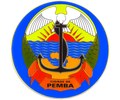 Pemba is the capital of the Province of Cabo Delgado and is located in the northern region of Mozambique. It is limited to the north and west by the Metuge district; to the south with the district of Mecufi; and it is washed by the Indian Ocean in an extension of 30 km in a straight line. Pemba was elevated to the category of city in 1958, then with the name of Port Amelia and the category of Municipality in 1997. The Municipality occupies an area of 194 km ² and the bay of Pemba is the 3rd largest in the world and has many languages: macua, maconde, muani, swahili, Portuguese, united by a single identity. The economy of the Municipality of Pemba has been characterized by a movement of people (national and foreign) looking for business opportunities, land, tourism and employment. With an economy based mainly on commerce and tourism. Agriculture is not very expressive while fishing has considerable potential. Its trade is composed of more than 800 formal commercial establishments and more than 2,200 informal ones. As for its industry, it is made up of civil construction units, mills, sawmills, carpentry, cashew processing, shrimp processing, poultry processing, purified water packaging, bakery, handicrafts and pottery. The tourist activity is in expansion and circumscribes to the beaches and some historical points. As far as transport is concerned, the most used type is road transport. Populations move using semi-collective transport, urban public, taxi services, private vehicles, motorcycles, bicycles, or on foot. In urban infrastructures it is noticed that the road network of the municipality of Pemba consists of roads of about 200 km of the classified network (avenues) and not classified (streets).
Pemba is the capital of the Province of Cabo Delgado and is located in the northern region of Mozambique. It is limited to the north and west by the Metuge district; to the south with the district of Mecufi; and it is washed by the Indian Ocean in an extension of 30 km in a straight line. Pemba was elevated to the category of city in 1958, then with the name of Port Amelia and the category of Municipality in 1997. The Municipality occupies an area of 194 km ² and the bay of Pemba is the 3rd largest in the world and has many languages: macua, maconde, muani, swahili, Portuguese, united by a single identity. The economy of the Municipality of Pemba has been characterized by a movement of people (national and foreign) looking for business opportunities, land, tourism and employment. With an economy based mainly on commerce and tourism. Agriculture is not very expressive while fishing has considerable potential. Its trade is composed of more than 800 formal commercial establishments and more than 2,200 informal ones. As for its industry, it is made up of civil construction units, mills, sawmills, carpentry, cashew processing, shrimp processing, poultry processing, purified water packaging, bakery, handicrafts and pottery. The tourist activity is in expansion and circumscribes to the beaches and some historical points. As far as transport is concerned, the most used type is road transport. Populations move using semi-collective transport, urban public, taxi services, private vehicles, motorcycles, bicycles, or on foot. In urban infrastructures it is noticed that the road network of the municipality of Pemba consists of roads of about 200 km of the classified network (avenues) and not classified (streets).
_
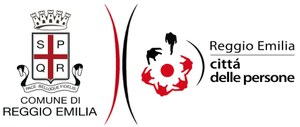 Reggio Emilia is an open city that innovates, creates bonds, explores the future with solid foundations in the present and in its history, rich in freedom and civic sense, solidarity, concreteness and a tradition of excellent cuisine. Here people take care of their living environment: the separate waste collection reaches 70%, public urban gardens producing zero-km products are shared and social cohesion makes it possible to welcome 18% of the population with non-Italian origin and belonging to a hundred different nationalities. Municipal libraries lend 850,000 volumes a year and 100,000 spectators per year take a seat in the city theaters, preschools and kindergartens enroll respectively 92% and 41% of the children, while the University of Modena and Reggio Emilia counts more than 8,000 students in Reggio Emilia and offers high quality and 'student friendly’ services, parents follow digital literacy courses to 'connect' with their children and the city is ninth among the Italian smart cities. Here a community Welfare develops together with the disability program 'Reggio Emilia city without barriers', which take care of removing architectural and cultural obstacles. The 'school roads' volunteers close the streets to the cars at the opening and closing of the schools and by bike you can go through 215 kilometers of cycling paths, to which more than 23 kilometers of greenways in over 100 parks and naturalistic areas are added. In Reggio Emilia we bet on a new model of sustainable development with the ‘Reggiane’ Park of Innovation, an industrial research and technology transfer hub where Palomar, a leading company in film and television production, is resettling.
Reggio Emilia is an open city that innovates, creates bonds, explores the future with solid foundations in the present and in its history, rich in freedom and civic sense, solidarity, concreteness and a tradition of excellent cuisine. Here people take care of their living environment: the separate waste collection reaches 70%, public urban gardens producing zero-km products are shared and social cohesion makes it possible to welcome 18% of the population with non-Italian origin and belonging to a hundred different nationalities. Municipal libraries lend 850,000 volumes a year and 100,000 spectators per year take a seat in the city theaters, preschools and kindergartens enroll respectively 92% and 41% of the children, while the University of Modena and Reggio Emilia counts more than 8,000 students in Reggio Emilia and offers high quality and 'student friendly’ services, parents follow digital literacy courses to 'connect' with their children and the city is ninth among the Italian smart cities. Here a community Welfare develops together with the disability program 'Reggio Emilia city without barriers', which take care of removing architectural and cultural obstacles. The 'school roads' volunteers close the streets to the cars at the opening and closing of the schools and by bike you can go through 215 kilometers of cycling paths, to which more than 23 kilometers of greenways in over 100 parks and naturalistic areas are added. In Reggio Emilia we bet on a new model of sustainable development with the ‘Reggiane’ Park of Innovation, an industrial research and technology transfer hub where Palomar, a leading company in film and television production, is resettling.
Municipality of Reggio Emilia website
_
 La Fondazione E35 nasce nel luglio 2015 da un progetto condiviso tra Enti rappresentativi del territorio reggiano e delle sue differenti componenti: Comune di Reggio Emilia, Provincia di Reggio Emilia, Fondazione Cassa di Risparmio Pietro Manodori, Camera di Commercio di Reggio Emilia e C.R.P.A. Questa unione nasce dall’esigenza di sostenere la promozione europea ed internazionale del territorio allo scopo di attrarre risorse economiche, realtà imprenditoriali, partenariati e condizioni di sostegno delle politiche di sviluppo locale e di supporto degli enti locali e delle loro aggregazioni. Attualmente la Fondazione ha all’attivo 48 progetti e cura le relazioni internazionali dei soci fondatori in oltre 30 Paesi nel mondo.
La Fondazione E35 nasce nel luglio 2015 da un progetto condiviso tra Enti rappresentativi del territorio reggiano e delle sue differenti componenti: Comune di Reggio Emilia, Provincia di Reggio Emilia, Fondazione Cassa di Risparmio Pietro Manodori, Camera di Commercio di Reggio Emilia e C.R.P.A. Questa unione nasce dall’esigenza di sostenere la promozione europea ed internazionale del territorio allo scopo di attrarre risorse economiche, realtà imprenditoriali, partenariati e condizioni di sostegno delle politiche di sviluppo locale e di supporto degli enti locali e delle loro aggregazioni. Attualmente la Fondazione ha all’attivo 48 progetti e cura le relazioni internazionali dei soci fondatori in oltre 30 Paesi nel mondo.
_
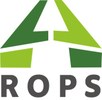 The Regional centre for social policy in Poznan (ROPS) is a regional self-governing organization directly accountable to the Wielkopolska region (Poland) Management board. ROPS carries out regional self-government tasks in the field of social policy, particularly in social care. It employs 121 employees & most of them are experienced in development of co-financed projects (ESF, ERDF and national & regional sources). ROPS sets of social policies aimed at equalizing the level of life of the region interacting with various actors in the municipalities and counties. Inspires and promotes new solutions in the field of social welfare, balancing the needs in this area and diagnose social problems. Wielkopolska region is located in west-central Poland: characteristic features of this region are its balanced economic development, high degree of industrialisation, high technological level and openness towards foreign markets. Wielkopolska has also large areas of high-quality agricultural land. Poznań, the capital city of Wielkopolska is the seat of 28 universities including Adam Mickiewicz University, University of Economics, Poznan Technical University and Medical Academy. ROPS supports the development and implementation of regional strategic plans such as Wielkopolska Strategy till 2020 & Strategy of Social Policy of Wielkopolska Region till 2020. ROPS will be in charge, within Shaping fair cities, of the campaign and media actions. ROPS has hands on expertise in the field of public participation processes and communication and aware-raising on territorial development issues. Its main role will entail increasing the engagement of citizens and local communities: the achievements to be reached are mobilizing and building partnerships with different local stakeholders, bringing together all sectors of society, boosting their participation and ensuring that diversity is embraced.
The Regional centre for social policy in Poznan (ROPS) is a regional self-governing organization directly accountable to the Wielkopolska region (Poland) Management board. ROPS carries out regional self-government tasks in the field of social policy, particularly in social care. It employs 121 employees & most of them are experienced in development of co-financed projects (ESF, ERDF and national & regional sources). ROPS sets of social policies aimed at equalizing the level of life of the region interacting with various actors in the municipalities and counties. Inspires and promotes new solutions in the field of social welfare, balancing the needs in this area and diagnose social problems. Wielkopolska region is located in west-central Poland: characteristic features of this region are its balanced economic development, high degree of industrialisation, high technological level and openness towards foreign markets. Wielkopolska has also large areas of high-quality agricultural land. Poznań, the capital city of Wielkopolska is the seat of 28 universities including Adam Mickiewicz University, University of Economics, Poznan Technical University and Medical Academy. ROPS supports the development and implementation of regional strategic plans such as Wielkopolska Strategy till 2020 & Strategy of Social Policy of Wielkopolska Region till 2020. ROPS will be in charge, within Shaping fair cities, of the campaign and media actions. ROPS has hands on expertise in the field of public participation processes and communication and aware-raising on territorial development issues. Its main role will entail increasing the engagement of citizens and local communities: the achievements to be reached are mobilizing and building partnerships with different local stakeholders, bringing together all sectors of society, boosting their participation and ensuring that diversity is embraced.
_
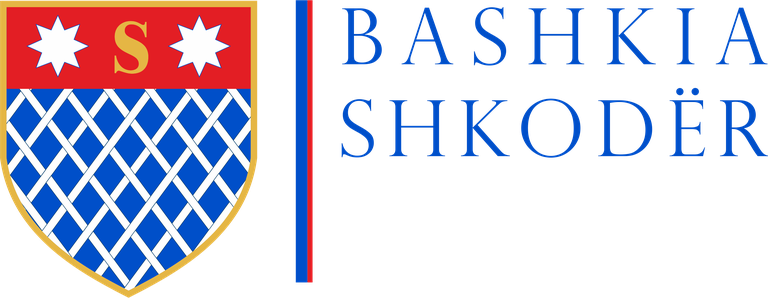 The new territorial division defined the city of Shkoder as the centre of the new municipality, and it is founded by the Illyrian tribe of Labeates. In the course of centuries, Shkoder was known as Scodra, Scutarum, Skadar, Skenderije or Iskenderije and was an important urban settlement since the second half of the 4th century B.C.
The new territorial division defined the city of Shkoder as the centre of the new municipality, and it is founded by the Illyrian tribe of Labeates. In the course of centuries, Shkoder was known as Scodra, Scutarum, Skadar, Skenderije or Iskenderije and was an important urban settlement since the second half of the 4th century B.C.
Located in a wide area at the north-western Albania, the city of Shkoder is today a political and administrative centre as well as an economic and cultural one of northern Albania. Shkoder’s university, libraries, archives, churches, mosques and museums, offer a diverse facet of today's Albania which leads to development and at the same time connection to local traditions.
Through its diverse ecosystem (Shkodra Lake and Buna, Drin and Kir rivers) near the Adriatic Sea and the nearest transit point to the north of the Balkan Peninsula and the European Union (land and rail) market, the Municipality of Shkoder manifests all the prerequisites of an important trade and transit area as well as an important economic and industrial centre of Albania.
The Municipality of Shkoder lies in the northwestern part of Albania within a territory of 873 km², which is bordered with Montenegro and Kosovo. The Municipality of Shkoder consists of 11 local administrative units (Shkodra, Ana e Malit, Bërdica, Dajçi, Guri i Zi, Postriba, Pulti, Rrethinat, Shala, Shoshi and Velipoja). The city of Shkoder, with an area of 16.46 km², is located in the northwestern part of Albania. The Lake of Shkoder is situated at northwest with a total surface area of 368 km² and is the largest lake in the Balkans.
Municipality of Shkoder website
_
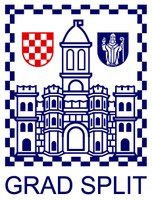 The city of Split is the second largest city of Croatia with 178.102 inhabitants and the largest city on the Croatian coast of Adriatic. Split is an important Croatian and Mediterranean cultural center, and second university center in Croatia. Split is also center of the dynamic region of Dalmatia with 500.000 inhabitants, and center of Urban agglomeration Split with 350.000 inhabitants. Its main objective is to represent all the citizens, improving the quality of their life, protecting the more disadvantage ones, promoting the economic development of the local system. Main activities of the City of Split as a local authority are: public security, services for families and disadvantaged categories, public housing service, childhood and juvenile services, tourism promotion services, local public transport, sport, cultural managing, protection of environmental and cultural heritage. Regarding the implementation of EU projects, City of Split has a great knowledge and trained personnel in the preparation and implementation of the projects. City of Split is also the intermediate body for the implementation of the Integrated territorial investment mechanism (ITI mechanism) in Urban agglomeration of Split, with 54,3 million EUR available for development projects. Within the EU project “Shaping fair cities” City of Split aims to create a climate for participatory governance regarding issues related to social development goals and to strengthen the City's cooperation with civil society organizations, involving the general public and students in project activitiesand creating informed and sensitized citizens.
The city of Split is the second largest city of Croatia with 178.102 inhabitants and the largest city on the Croatian coast of Adriatic. Split is an important Croatian and Mediterranean cultural center, and second university center in Croatia. Split is also center of the dynamic region of Dalmatia with 500.000 inhabitants, and center of Urban agglomeration Split with 350.000 inhabitants. Its main objective is to represent all the citizens, improving the quality of their life, protecting the more disadvantage ones, promoting the economic development of the local system. Main activities of the City of Split as a local authority are: public security, services for families and disadvantaged categories, public housing service, childhood and juvenile services, tourism promotion services, local public transport, sport, cultural managing, protection of environmental and cultural heritage. Regarding the implementation of EU projects, City of Split has a great knowledge and trained personnel in the preparation and implementation of the projects. City of Split is also the intermediate body for the implementation of the Integrated territorial investment mechanism (ITI mechanism) in Urban agglomeration of Split, with 54,3 million EUR available for development projects. Within the EU project “Shaping fair cities” City of Split aims to create a climate for participatory governance regarding issues related to social development goals and to strengthen the City's cooperation with civil society organizations, involving the general public and students in project activitiesand creating informed and sensitized citizens.
_
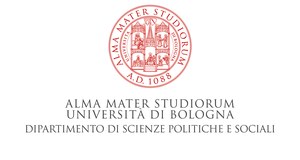
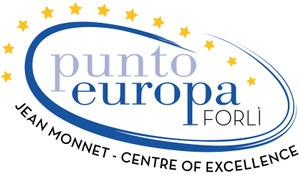 The University of Bologna has implemented a multi-campus structure to enhance the expansion of the teaching offered and to allow the activation of a consolidated research activity in the territory, in the attempt of improving the academic activities functioning and the quality of life for students and teachers. Officially founded on 1st October 2001, the Forlì Campus actually represents the ultimate step of a process aimed to the creation of a new model of university based on the decentralization and the organization of the universities into different branches. In the University lays the Punto Europa Forlì, an information and documentation centre, established in 1999 by the University of Bologna - Forli Campus, the municipality of Forlì and the Province of Forlì-Cesena. Punto Europa Forlì benefits from the consulting and the experience of professors, researchers and students of the Bologna University Schools in Forlì. Its Scientific Committee is composed by Professors of University of Bologna specialized in EU matters. Punto Europa is part of the information Network of the European Commission “Europe Direct” since 2007 and has been recognized as Centre of Excellence Jean Monnet since 2014 and as European Documentation Centre since 2018. It contributes to the spread of the awareness of European citizenship thanks to its information service and to the distribution of documentation material on the EU. The office has also an education aim, which is addressed through the organization of training courses, conferences and seminars on EU issues, even in cooperation with different institution and directed to Public Administration executives and officers, school teachers, citizens and associations. Migration is a main topics in its research and information activities.
The University of Bologna has implemented a multi-campus structure to enhance the expansion of the teaching offered and to allow the activation of a consolidated research activity in the territory, in the attempt of improving the academic activities functioning and the quality of life for students and teachers. Officially founded on 1st October 2001, the Forlì Campus actually represents the ultimate step of a process aimed to the creation of a new model of university based on the decentralization and the organization of the universities into different branches. In the University lays the Punto Europa Forlì, an information and documentation centre, established in 1999 by the University of Bologna - Forli Campus, the municipality of Forlì and the Province of Forlì-Cesena. Punto Europa Forlì benefits from the consulting and the experience of professors, researchers and students of the Bologna University Schools in Forlì. Its Scientific Committee is composed by Professors of University of Bologna specialized in EU matters. Punto Europa is part of the information Network of the European Commission “Europe Direct” since 2007 and has been recognized as Centre of Excellence Jean Monnet since 2014 and as European Documentation Centre since 2018. It contributes to the spread of the awareness of European citizenship thanks to its information service and to the distribution of documentation material on the EU. The office has also an education aim, which is addressed through the organization of training courses, conferences and seminars on EU issues, even in cooperation with different institution and directed to Public Administration executives and officers, school teachers, citizens and associations. Migration is a main topics in its research and information activities.
Punto Europa - University of Bologna website
_
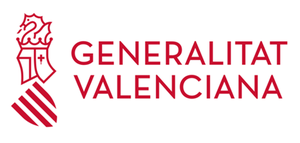
The Vicepresidència i Conselleria d’Igualtat i Políticas Inclusivas, is the department with in the Generalitat Valenciana (Government of the Valencian Region) dealing with matters of social services policies, direction and execution of social policy, coordination of policies for the promotion of personal autonomy and care for people in situations of dependency, for people with disabilities, for aged people as well as matters of social benefits, support policies for families, social inclusion and community development, promotion of gender equality, prevention of sexist violence and attention to women victims of gender violence, childhood and adolescence, comprehensive youth policies, inclusion and attention to migrant, LGBTI diversity, family diversity, ethnic minorities and Roma, religious diversity, equal treatment, non-discrimination and prevention of hate crimes, social volunteering, and uses of time and co-responsibility. The Comunitat Valenciana (Valencian Region) is a region in the east coast of Spain by the Mediterranean sea. There are around 5 million inhabitants and is composed of three provinces, Alicante, Castellón and Valencia.
Generalitat Valenciana website
_
 Located on the Jutland peninsula in Southeast Denmark, the Municipality of Vejle is the sixth largest in the country (population: 110,000), and the capital of Region South Denmark. "Vejle...Making things happen" sum up Vejle's vision. To efficiently deliver services, the municipality employs over 12,000 workers, and operates on an annual budget of ca. € 724 million. Embracing the opportunities and challenges of globalization, the municipality developed an international strategy, working with international institutions and organizations to share experiences and learn from colleagues abroad. This becomes all the more important for municipal workers as Vejle is a member of Rockefeller Foundation's 100 Resilient Cities Network, where Vejle is the only Scandinavian city represented. Our vision is to transform Vejle into a smart, resilient city, providing world class service to its residents. Vejle addresses and copes with the challenges of the 21st century through a strategic, innovative approach to development. To survive global challenges and preserve the residents’ living standards, new methods are constantly developed and tested to transform Vejle into a smart city that rationalizes the use of digital solutions for its services. The past 3 years Vejle was partner in the EuropeAid project LADDER-Local Authorities as Drivers for Development Education and Raising awareness, working with creating ties between the local authorities and civil society in order to work for sustainable development.
Located on the Jutland peninsula in Southeast Denmark, the Municipality of Vejle is the sixth largest in the country (population: 110,000), and the capital of Region South Denmark. "Vejle...Making things happen" sum up Vejle's vision. To efficiently deliver services, the municipality employs over 12,000 workers, and operates on an annual budget of ca. € 724 million. Embracing the opportunities and challenges of globalization, the municipality developed an international strategy, working with international institutions and organizations to share experiences and learn from colleagues abroad. This becomes all the more important for municipal workers as Vejle is a member of Rockefeller Foundation's 100 Resilient Cities Network, where Vejle is the only Scandinavian city represented. Our vision is to transform Vejle into a smart, resilient city, providing world class service to its residents. Vejle addresses and copes with the challenges of the 21st century through a strategic, innovative approach to development. To survive global challenges and preserve the residents’ living standards, new methods are constantly developed and tested to transform Vejle into a smart city that rationalizes the use of digital solutions for its services. The past 3 years Vejle was partner in the EuropeAid project LADDER-Local Authorities as Drivers for Development Education and Raising awareness, working with creating ties between the local authorities and civil society in order to work for sustainable development.
_
 Women network, founded in 2004, is an international network of women representatives of local authorities, associations and NGOs, research institutions and universities. The headquarter is located in the city of Forlì, in the offices of the European Projects and International Relations Department of the Municipality. The main goal is to promote equal opportunities between women and men and to contribute to the promotion of cultural differences and gender culture. It aims at promoting the women empowerment improving to produce an increase of the female presence in the local, regional and national governments. Women network aims at promoting a culture that valorize the knowledge, women's skills and equal opportunities and encouraging the implementation of the agreements on equal treatment, equal pay and non-discrimination with regard to work and social security. It promotes moreover the building of welfare policies, and social safety nets for disadvantaged women. It is focused on a particular European area, East and South Europe. Women network joined various European, regional and national projects, like a project on Gender resources centres for orientation and professional qualification of socially excluded women in Albania and Montenegro, the project Fair trade fair place - cofunded by Emilia-Romagna Region, as the project Income edge –improvement of incomes and living conditions for small producers in the Gaza Strip. Within Shaping fair cities, Women network and the Municipality of Forlì will be transnational coordinator for the implementation of SDG n°5, which aims to achieve gender equality and empower all women and girls.
Women network, founded in 2004, is an international network of women representatives of local authorities, associations and NGOs, research institutions and universities. The headquarter is located in the city of Forlì, in the offices of the European Projects and International Relations Department of the Municipality. The main goal is to promote equal opportunities between women and men and to contribute to the promotion of cultural differences and gender culture. It aims at promoting the women empowerment improving to produce an increase of the female presence in the local, regional and national governments. Women network aims at promoting a culture that valorize the knowledge, women's skills and equal opportunities and encouraging the implementation of the agreements on equal treatment, equal pay and non-discrimination with regard to work and social security. It promotes moreover the building of welfare policies, and social safety nets for disadvantaged women. It is focused on a particular European area, East and South Europe. Women network joined various European, regional and national projects, like a project on Gender resources centres for orientation and professional qualification of socially excluded women in Albania and Montenegro, the project Fair trade fair place - cofunded by Emilia-Romagna Region, as the project Income edge –improvement of incomes and living conditions for small producers in the Gaza Strip. Within Shaping fair cities, Women network and the Municipality of Forlì will be transnational coordinator for the implementation of SDG n°5, which aims to achieve gender equality and empower all women and girls.
